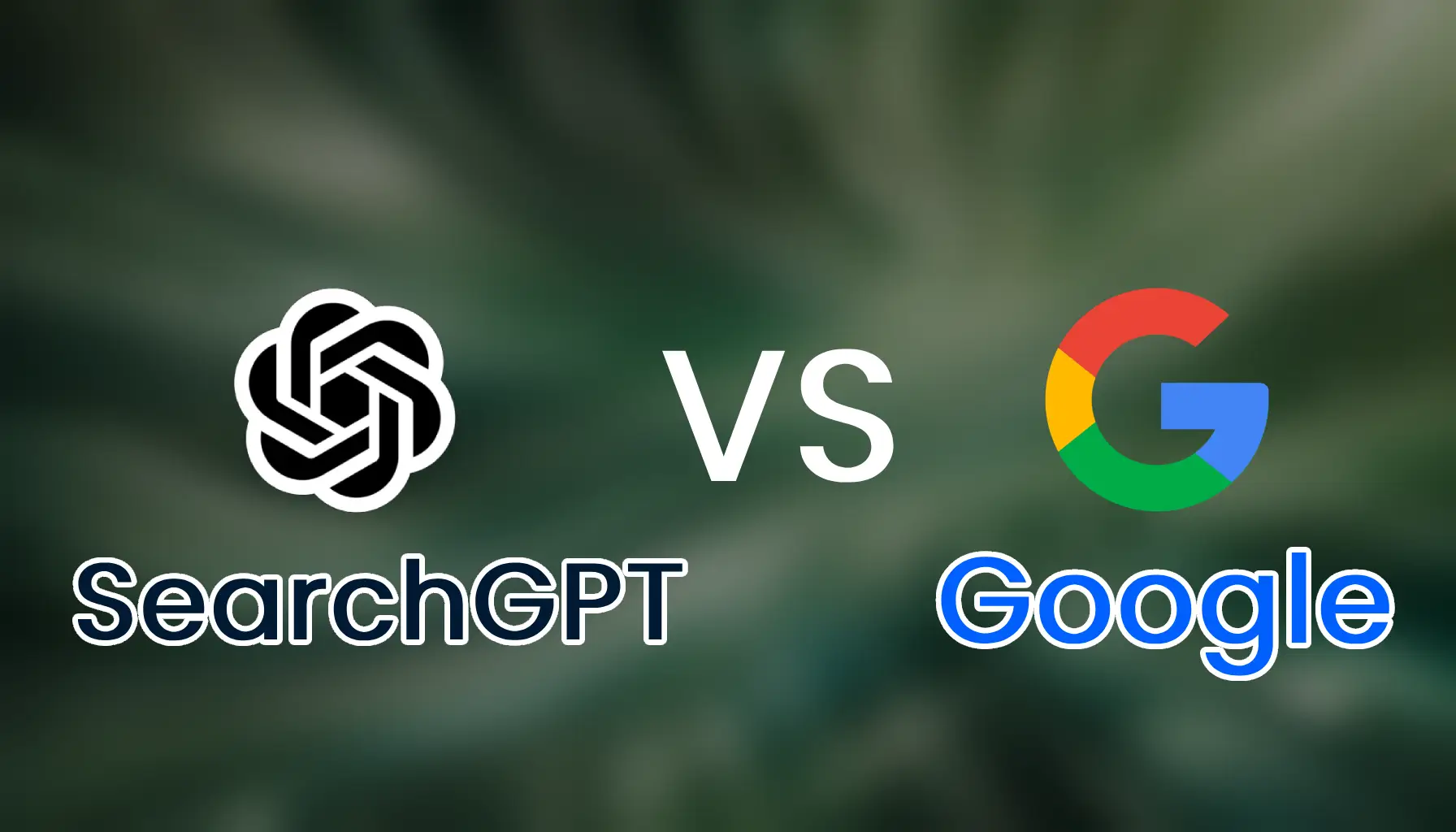SearchGPT vs. Google: A New Era of Search?
The means by which we access information is quickly shifting. Google has reigned for years, at least when it is related to the common man who wanted everything anybody would ever think of on the Internet. But here comes the disruptor: SearchGPT.
OpenAI’s new search engine promises to make human interactions with information a hundred times better. More intuitive and conversational. SearchGPT is going to change the game and disrupt the digital environment.
SearchGPT: A Fresh Tool For Searching
SearchGPT brings a revolution to online information discovery. OpenAI, the team behind ChatGPT, designed this application to provide you with simple but helpful answers to your inquiries.
SearchGPT differs from traditional search engines, which display a list of links. It strives to deliver a response right away. Want to know the best camera for vlogging? SearchGPT can summarize the top-rated cameras, their pros and cons, and where to get them. It’s like having a smart assistant who can find the information you need.
However, SearchGPT does more than merely answer inquiries. It’s also about being open. Each answer includes clear links to the sources. This allows you to verify the facts and delve deeper into the subject if you wish to learn more.
OpenAI CEO Sam Altman wrote on X, “We think there is room to make search much better than it is today.”
The pioneer of Search, Google, has already made attempts into integration of AI into traditional results, but the result was mixed. The well-known fiasco “putting glue on pizza” is a bright example of hard work to make this happen.
Benefits of SearchGPT
Not truly a search engine, it is more like a conversationalist that understands your needs. Unlike traditional search tools that twist you to fit their language, SearchGPT lets you ask questions in simple language. Have any vegan lasagna recipes? Just ask. Want to know the best hiking trails near you? SearchGPT will let you know.
Enhanced User Experience
Beyond the tone of the conversation, however, SearchGPT is a timesaver. It doesn’t give you links alone; most of the time, direct answers are given. Distilling information from several sources in summary fashion. Imagine having searched for the latest scientific breakthroughs on climate change and receiving a clear and concise response. It gives your answers without having to go through many articles.
Real-Time Information
What sets SearchGPT apart is that it can process and understand complex queries. You could ask questions that would stump traditional search engines, such as, “What are top tech trends in 2024?” and get a reflective response.
Potential Future Applications
SearchGPT, however, is not only for the present. More importantly, it’s a look into search’s future. It could, in this regard, provide results that turn out to be personally relevant to users’ tastes by learning from its interactions with them. That’s more useful information and fewer wasted minutes combing through irrelevant search results.
Ultimately, SearchGPT represents a paradigm shift with respect to how we interact with information. Its power is the ability to investigate issues on any subject in a natural and efficient way. Many more such features will be added to SearchGPT and other similar platforms as technology evolves further.
SearchGPT Vs Google
We don’t know for sure if SearchGPT will be better than Google yet. But one thing is clear: it’s definitely different. SearchGPT works in a new way compared to the search engines we use now.
Conversational Results
It’s like having a conversation on the internet. That’s what SearchGPT is trying to do. Instead of just typing keywords into a search box, you talk to it. Want to know about the latest smartphones? Just ask, ‘The best smartphones in 2024?’
Unlike traditional search engines that give you a list of websites, SearchGPT provides direct answers. It’s like having a knowledgeable friend who can quickly summarize information from across the web.
Follow Up Questions
But the real power of SearchGPT is in the follow-up questions. Once you get an answer, you can ask for more details or explore different aspects of the topic. It’s like having a never-ending conversation with an expert on any subject.
Think of it this way: When you talk to a friend about a movie, you don’t just ask, “What’s the movie about?” You might ask, “Who’s in it?” or “Did you like it?” SearchGPT works the same way. You can keep asking questions and get more specific information with each answer.
We don’t know for sure if SearchGPT will be better than Google yet. But one thing is clear: it’s definitely different.
Links Vs Targeted Responses
Simon Brisk, SEO Strategist of Click Intelligence said, SearchGPT employs AI language models to comprehend the intent of the user’s query, resulting in more contextually relevant results even when the query is not correctly stated or contains confusing terms.
Compare this with Google’s principal mechanism: keyword matching. This quite often give results that are irrelevant or less helpful to the user for complex or nuanced queries.
Keyword Matching vs. AI Understanding
SearchGPT is intelligent. It tries to figure out what you mean when you ask a question. For example, if you ask, “What’s the best camera for beginners?” it will be determined that you want to use an easy-to-use camera. Most traditional search engines are searching for mainly exact words on websites.
This means that if you miss a word or use another one, you may not get the best results. It’s different. SearchGPT gets what you’re really saying, even if you don’t use the perfect words. This means you get better answers that match what you’re actually looking for.
Ads or No Ads?
Elisa Bender of RevenueGeeks said, one major difference between Google and SearchGPT is the ads. Generally, Google results are filled with ad pages, which really makes it difficult to find what you want. You will have to scroll down a considerable number of links, which are actually sponsored.
On the other hand, there are no advertisements in SearchGPT. That means you view results of the highest relevance on your first go. According to OpenAI, it is focused on finding the best information and presenting it clearly to users.
A Battle of User-Interface
Google used to be pretty simple: you’d just type in whatever you wanted and get the results. Nowadays, though, there’s so much extra on the page: ads, suggested news, and things you might not want. It is like trying to find a specific toy in a big store with many other distractions.
SearchGPT is different. You walk into a small, quiet shop to order exactly what you need, which is much less cluttered and gets straight to the point. It’s a cleaner way to search.
OpenAI’s SearchGPT Could Stumble In Some Areas
It’s clever, but not quite perfect. SearchGPT can get confused. For example, asking for something very, very old, and different information exists, SearchGPT might get it wrong. Kind of like trying to find out a person’s real birthday when different family trees have different dates of birth.
Another problem would be if you asked for something very specific in a small place. Say you wanted to know where to get the best pizza in some really small town; SearchGPT wouldn’t have an idea. This is where regular search engines do better on small areas because they have more information about those places.
While SearchGPT is really very good at a lot of things, the information it returns must always be checked, especially in serious matters. Using a few different sources is always a good idea.
Will SearchGPT Take Over Google?
The way we do our searching has changed. From simple matching of keywords, it evolved into sophisticated human-machine interactions.
AI has been at the center of all this evolution. Grasping the fine lines of human language, AI-driven search engines are able to offer relevance and personalization. We have moved from a world of static search results into dynamic conversation and engagement, in which search engines second-guess what we want and give that to us in a more intuitive way.
The future of search is bright, with the possibilities of going beyond text into images, videos, and augmented reality. With further advances in AI, more intelligent, helpful, and integrated search into our lives will arrive.




